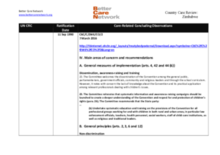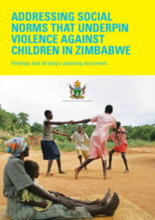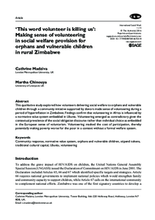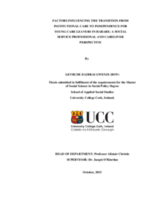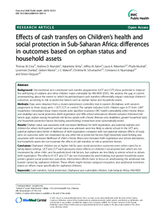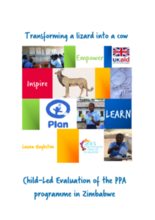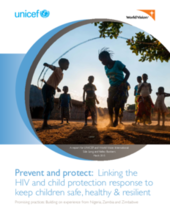Displaying 81 - 90 of 136
This country care review includes the care-related Concluding Observations adopted by the Committee on the Rights of the Child.
Large scale studies published in the 1990s and early 2000s generally showed that significant educational disparities existed based on orphan status and a child's relationship to the head of the household. Since the data relied on by these studies were collected, the global community has conducted major campaigns to close these gaps, through the Education for All (EFA) and Millennium Development Goals (MDGs). This study examined these factors using eight country-years from five sub-Saharan African countries (Malawi, Mozambique, Niger, Uganda, and Zimbabwe).
This report highlights key findings from a social norms study conducted in Zimbabwe to understand the drivers of violence affecting children.
This study is a snapshot of a multi-country study involving Italy, Peru, Viet Nam, and Zimbabwe of how individual characteristics, interpersonal relationships, and the communities in which people live interact with institutional drivers to increase or reduce a child’s risk of violence.
This qualitative study explored how volunteers delivering social welfare to orphans and vulnerable children through a community initiative supported by donors made sense of volunteering during a period of hyperinflation in Zimbabwe.
This study (a thesis submitted in fulfilment of the requirements for the Master of Social Science in Social Policy Degree at University College Cork, Ireland) explored the factors influencing the transition from care to independence in Harare, Zimbabwe.
REPSSI is hosting the 3rd annual Psychosocial Support Forum on the African continent in Victoria Falls, Zimbabwe
This study, conducted in eastern Zimbabwe, addresses the gap in current understanding about the extent to which household-based cash transfers differentially impact individual children’s outcomes, according to risk or protective factors such as orphan status and household assets.
In 2011 Plan International UK secured a Programme Partnership Agreement (PPA) with the Department for International Development (DFID). This strategic funding has been used to develop the Building Skills for Life Programme.
This report from UNICEF and World Vision International documents country level approaches that respond to HIV and child protection challenges facing children and adolescents by linking both those responses.

